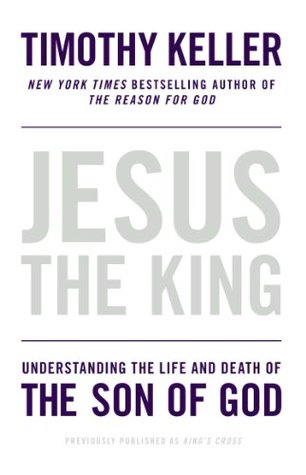More on this book
Community
Kindle Notes & Highlights
Read between
January 1 - January 14, 2018
The essence of other religions is advice; Christianity is essentially news. Other religions say, “This is what you have to do in order to connect to God forever; this is how you have to live in order to earn your way to God.” But the gospel says, “This is what has been done in history. This is how Jesus lived and died to earn the way to God for you.” Christianity is completely different. It’s joyful news.
The gospel isn’t advice: It’s the good news that you don’t need to earn your way to God; Jesus has already done it for you. And it’s a gift that you receive by sheer grace—through God’s thoroughly unmerited favor.
When the Bible talks about sin it is not just referring to the bad things we do. It’s not just lying or lust or whatever the case may be—it is ignoring God in the world he has made; it’s rebelling against him by living without reference to him. It’s saying, “I will decide exactly how I live my life.” And Jesus says that is our main problem.
The Bible says that our real problem is that every one of us is building our identity on something besides Jesus. Whether it’s to succeed in our chosen field or to have a certain relationship—or even to get up and walk—we’re saying, “If I have that, if I get my deepest wish, then everything will be okay.”
The fact that we thought getting our deepest wish would heal us, would save us—that was the problem. We had to let Jesus be our Savior.
Jesus refers to himself throughout the Gospels in a unique manner. He says, “I am the bread of life”; “I am the light of the world”; “I am the way, and the truth, and the life”; “I am the true vine”; “I am the Good Shepherd.”
However, if Jesus is who he says he is, there’s another way to look at life. If he’s Lord of the storm, then no matter what shape the world is in—or your life is in—you will find Jesus provides all the healing, all the rest, all the power you could possibly want.
But Jesus’s question to them has behind it this thought: Your premise is wrong. You should have known better. I do allow people I love to go through storms. You had no reason to panic.
People who believe more must not be hard on those who believe less. Why? Because faith ultimately is not a virtue; it’s a gift.
Nothing that comes in from the outside makes us unclean.
Jesus is saying: We are what’s wrong. It’s what comes out from the inside.
It’s the self-centeredness of the human heart. It’s sin.
But for the first time I was able to see how important it was that I identified with Christ—his love has enabled me to set up emotional boundaries with people that I never could before. This has enabled me to love my friends and family for who they are and not seek more from them, because I can find whatever is lacking in Christ.
The only way God can pardon us and not judge us is to go to the cross and absorb it into himself. “I must suffer,” Jesus said.
If you’re building your identity on “somebody loves me,” or if you’re building your identity on “I’ve got a good career,” and anything goes wrong with that relationship or that job, you fall apart. You feel like you don’t have a self.
Jesus is saying, “It’s not enough just to know me as a teacher or as an abstract principle; you have to look at my life. I went to the cross—and on the cross I lost my identity so you can have one.”
Give up yourself, and you will find your real self. Lose your life and you will save it.
At some level, your normal assumptions, your pride and your egotistical way of thinking, are blinding you to the truth. One prime example of this is worry. Naturally, if you love people, you’re going to worry about them. But do you know where constant worry comes from? It’s rooted in an arrogance that assumes, I know the way my life has to go, and God’s not getting it right.
The lion excels in strength and in the majesty of his appearance and voice. The lamb excels in meekness and patience . . . is [sacrificed] for food . . . and . . . clothing. But we see that Christ is in the text compared to both, because the diverse excellencies of both wonderfully meet in him. . . . There is in Jesus Christ . . . a conjunction of such really diverse excellencies as otherwise would have seemed to us utterly incompatible in the same subject. . . .55
But if you’re starting to get rooted in the kingdom of God, you know losing your job is not going to be easy or pleasant, but you have learned that when weakness and suffering, poverty and rejection are near, the kingdom of God is near. It’s the time when you come to grips with your real treasure, your real identity.
A Christian can respond, “It’s not the end of the world if somebody takes advantage of me, or if my money is gone, or if my career doesn’t develop as I might like. I’m not controlled by that fear anymore.” You are replacing the kingdom of this world with the kingdom of God.


